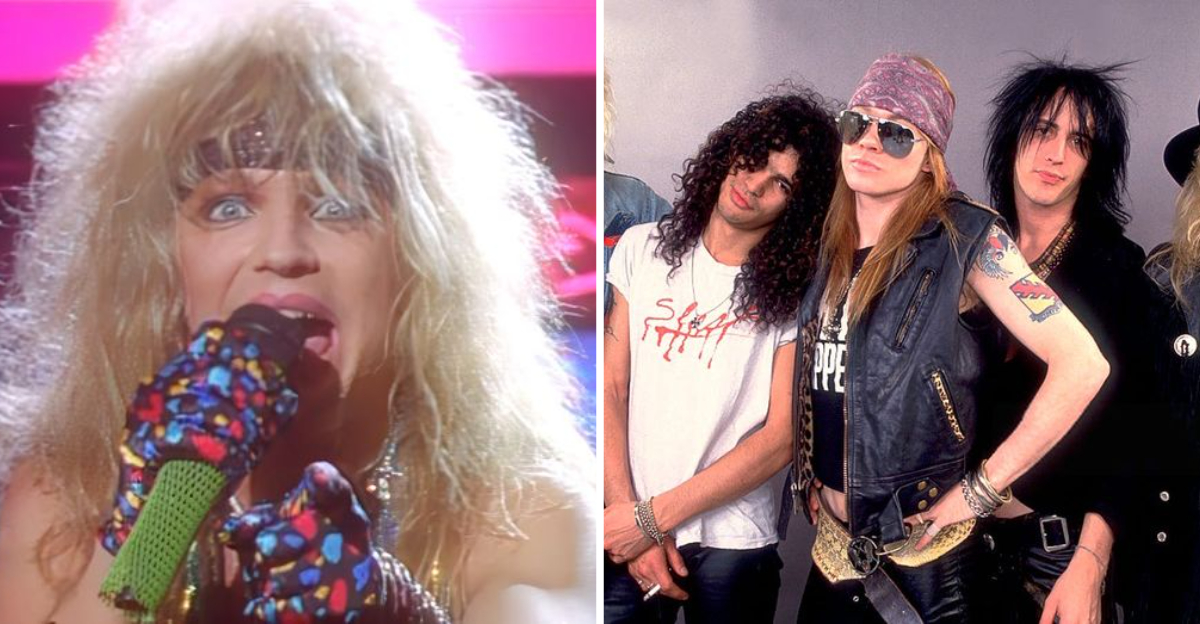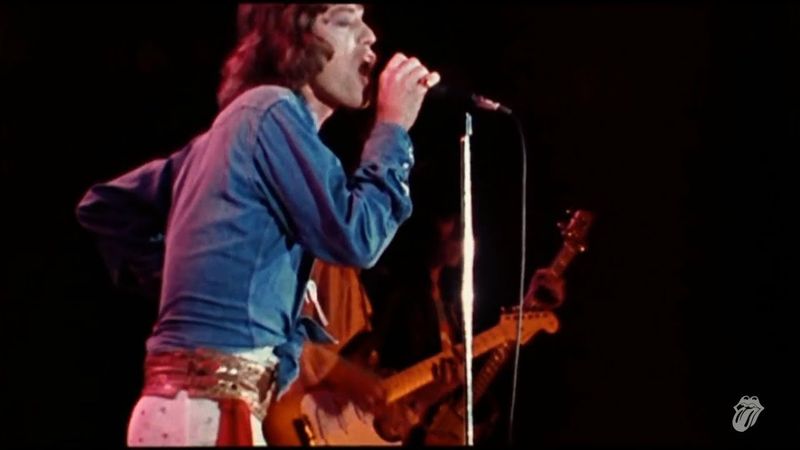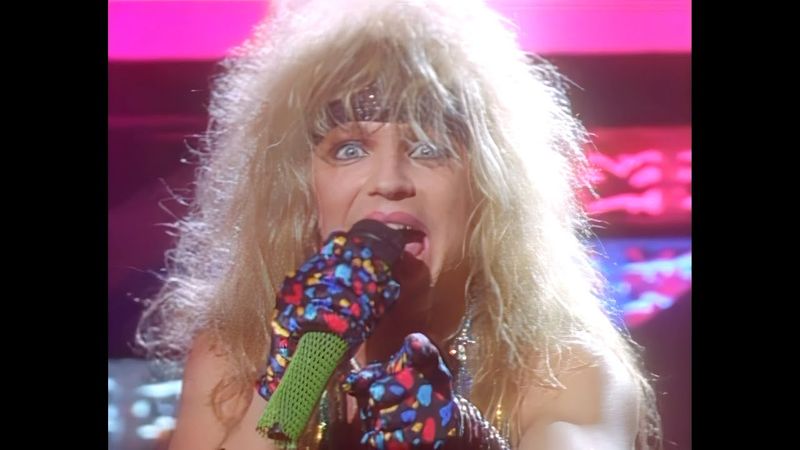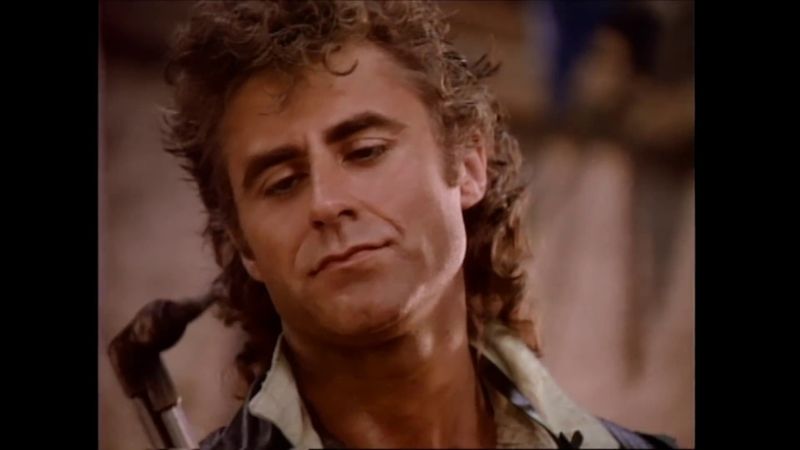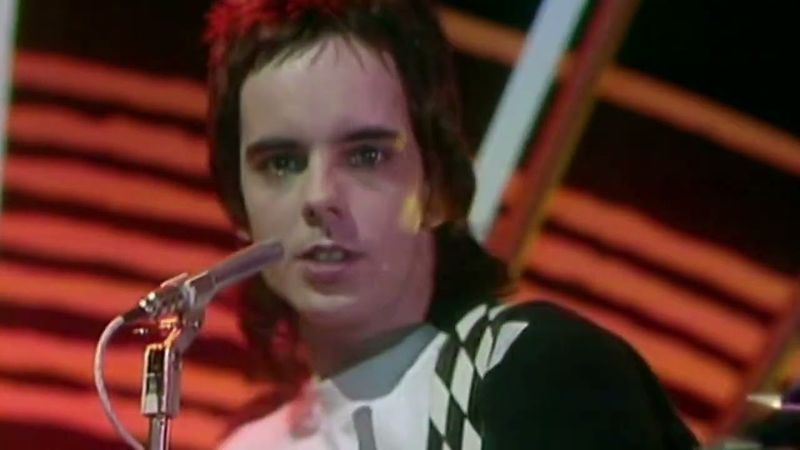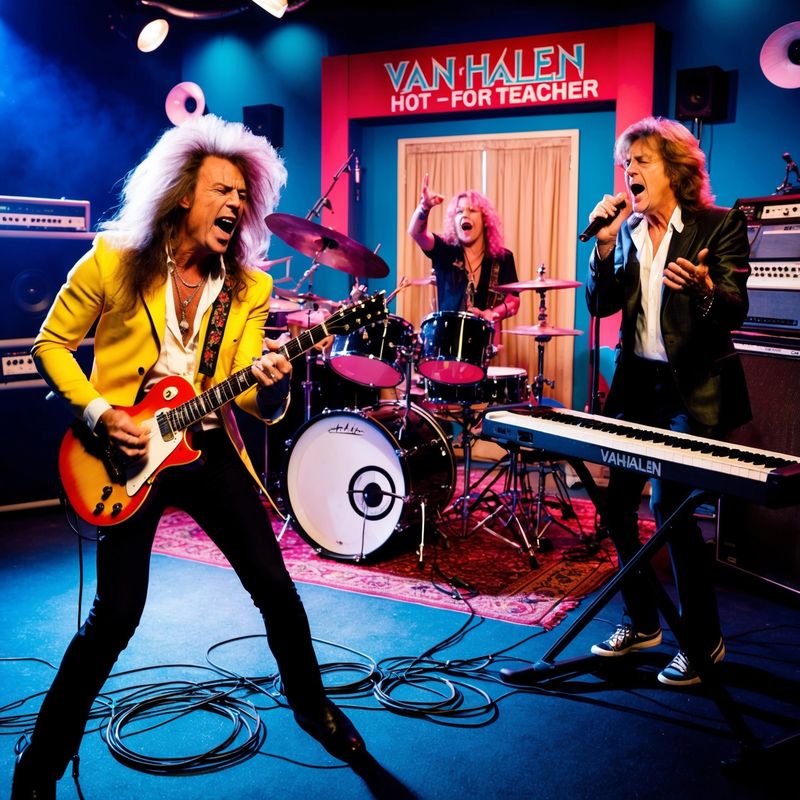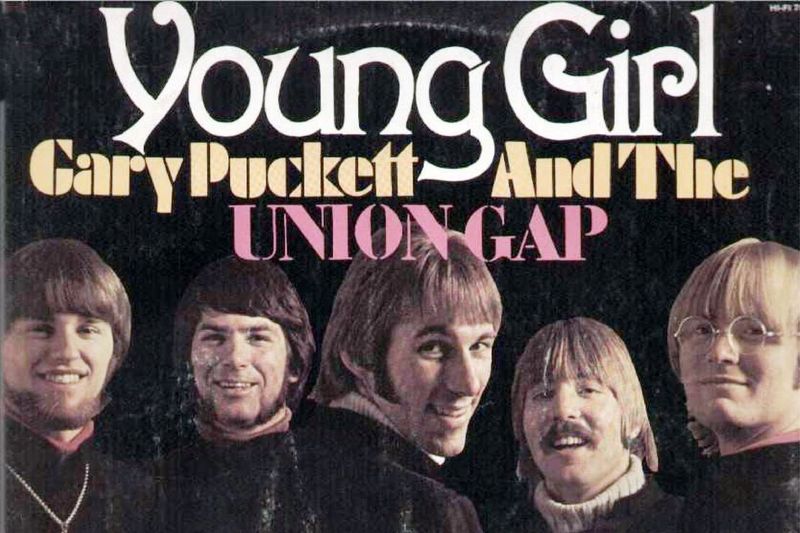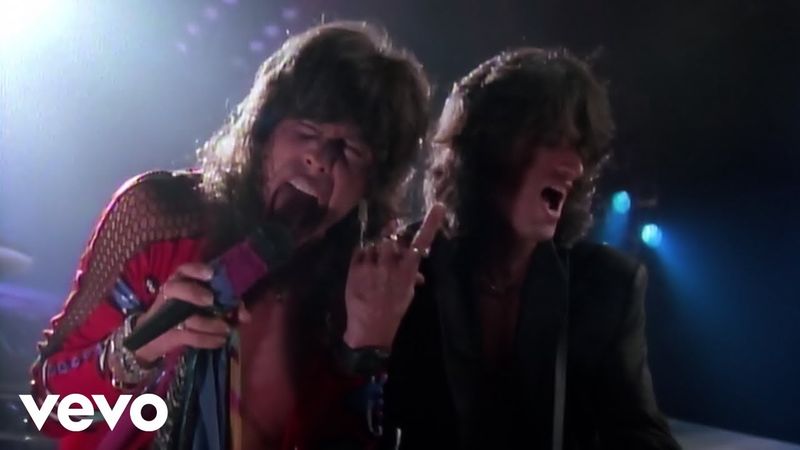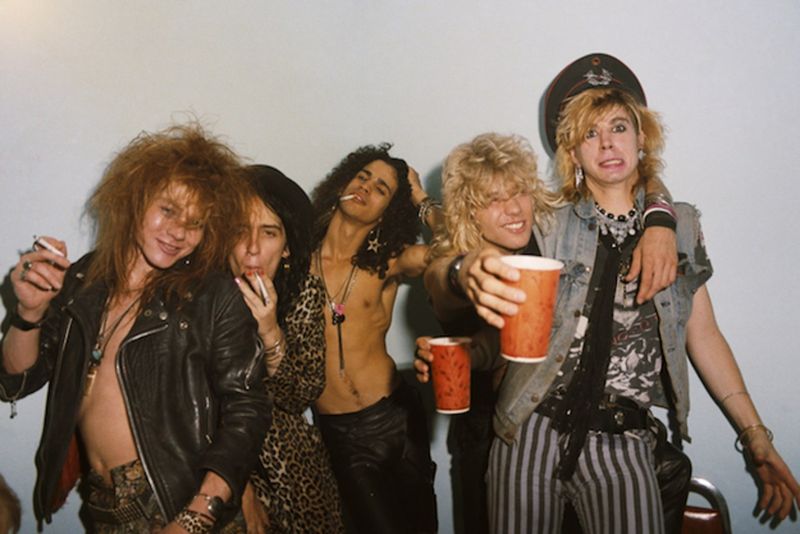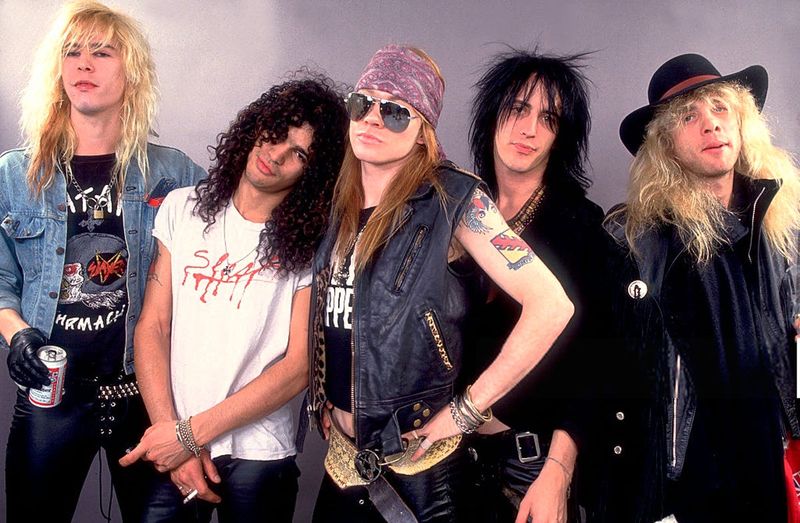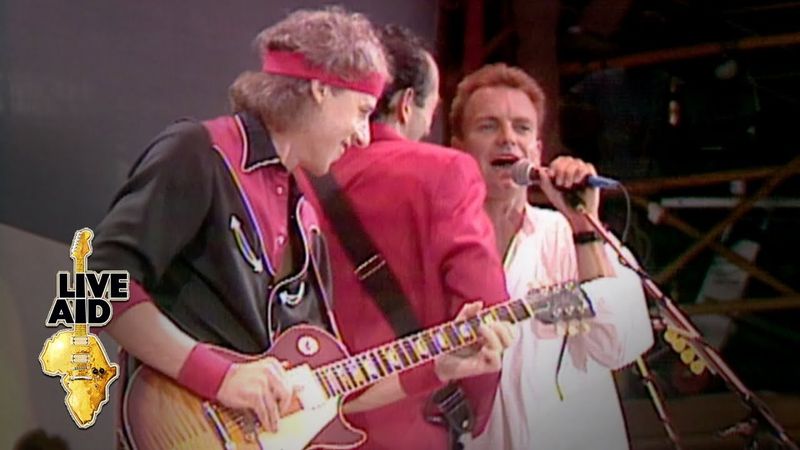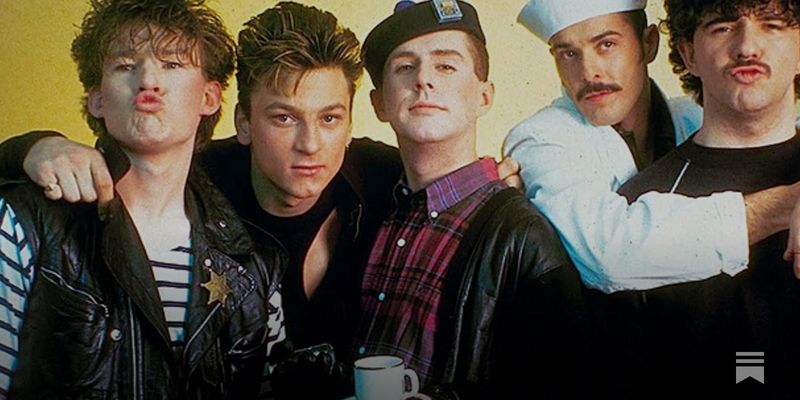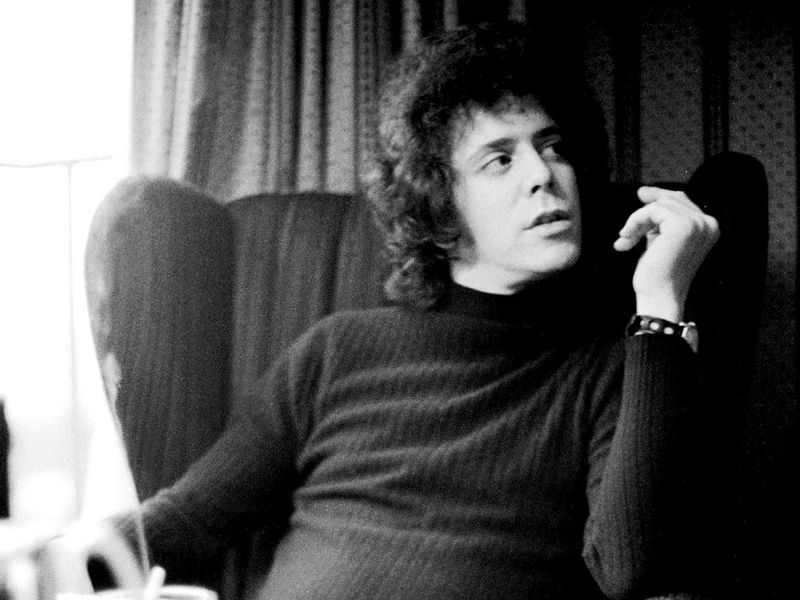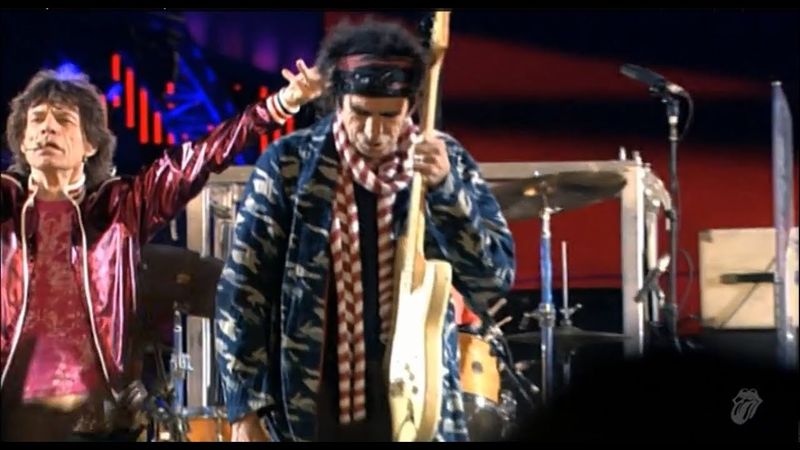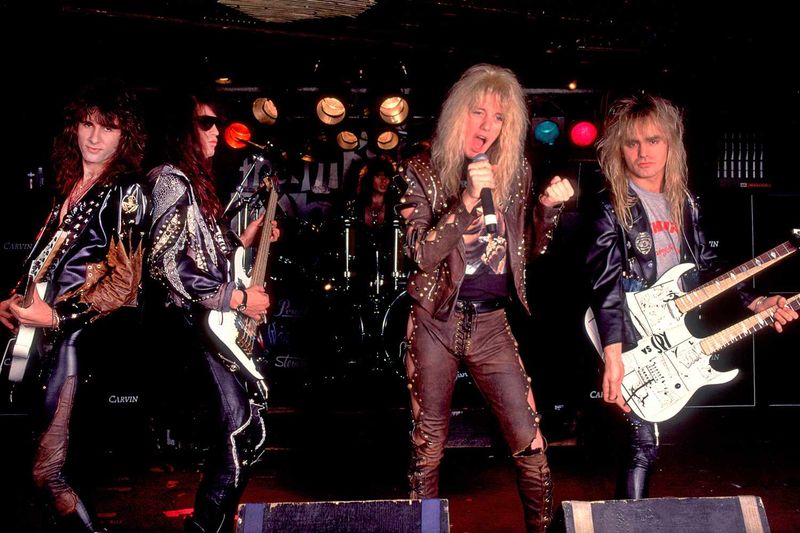The 1980s were a vibrant time for music, but not all hits from that era would pass today’s social standards. Many songs featured themes and lyrics that are now considered controversial.
Let’s explore 14 such tracks that, while once popular, might not be released in the same form today.
1. “Brown Sugar” – The Rolling Stones (1981 Live Version)
Originally released in 1971, “Brown Sugar” continued to be popular in the ’80s. The song’s lyrics, however, delve into themes of slavery and exploitation, which have aged poorly. Even The Rolling Stones have stopped playing it live, acknowledging the controversy.
The energetic beat contrasts sharply with the unsettling subject matter, making it a complex piece in their discography.
Today, such themes would likely spark significant backlash, leading to calls for revision or outright removal from setlists. The Rolling Stones’ decision reflects a broader shift in awareness about the impact of lyrics.
2. “I Want Action” – Poison (1986)
Poison’s glam metal hit “I Want Action” was a staple of the ’80s rock scene, celebrated for its catchy, rebellious energy. However, the song contains lyrics about taking advantage of women and ignoring consent, which make it highly problematic today.
In an era where conversations about consent and respect are paramount, the song’s message would be unacceptable. Revisiting such tracks highlights how societal norms have evolved. Modern audiences might find the lyrics concerning, leading to discussions about gender dynamics in music.
Fans of ’80s rock still enjoy the nostalgia, albeit with a critical lens.
3. “Naughty Naughty” – John Parr (1984)
John Parr’s “Naughty Naughty” echoes themes similar to the later “Blurred Lines” controversy. Released in 1984, the song plays with boundaries around consent, a topic that has become increasingly scrutinized over the years.
The catchy tune masks its controversial undertones, which would likely meet with criticism today. Awareness and sensitivity around such issues have grown, prompting artists to reflect more carefully on the messages they convey.
The song serves as a reminder of how far societal awareness has come concerning respectful relationships. Parr’s energetic performance remains memorable, albeit with a tinge of retrospective critique.
4. “Turning Japanese” – The Vapors (1980)
“Turning Japanese” by The Vapors was an ’80s hit with an infectious melody, but it relies on cultural stereotypes that are questionable today. The song’s playful tone belies its reliance on outdated caricatures, making it a controversial piece by modern standards.
Such stereotypes are less accepted now, as society moves toward greater inclusivity and cultural sensitivity. While the song was intended to be lighthearted, today it might prompt audiences to reflect critically on cultural representation in media.
The Vapors’ catchy tune remains iconic, sparking discussions about cultural portrayals in popular music.
5. “Hot for Teacher” – Van Halen (1984)
Van Halen’s “Hot for Teacher” is a quintessential ’80s rock anthem, famed for its exhilarating instrumentation. However, the lyrics objectify a student-teacher relationship, raising concerns about power dynamics.
In today’s context, such themes would likely be met with significant criticism. The song remains a fixture in discussions about appropriate content in music, illustrating changing perspectives on relationships.
Fans of the band still celebrate the musical brilliance of Van Halen, but the lyrical content prompts discussions about evolving social norms. ’80s rock enthusiasts often grapple with the nostalgia of the era versus modern values.
6. “Young Girl” – Gary Puckett & The Union Gap
Though originally released before the ’80s, “Young Girl” by Gary Puckett & The Union Gap continued to see play during the decade. The song tells of an older man realizing his young girlfriend is underage but blames her for the situation.
Such themes would be heavily criticized now for victim-blaming and inappropriate age dynamics. Modern listeners might find the song troubling, prompting discussions about responsible storytelling in music.
This track highlights the evolving understanding of age-appropriate relationships and accountability. Fans of classic hits often revisit these tracks with a more critical perspective.
7. “Dude (Looks Like a Lady)” – Aerosmith (1987)
Aerosmith’s “Dude (Looks Like a Lady)” became a massive hit, celebrated for its catchy rhythm and Steven Tyler’s distinctive vocals. The song, however, touches on themes of transgender and gender expression in a way that could be seen as mocking rather than supportive.
In today’s society, where gender identity is taken more seriously, such portrayals might face backlash. The song remains a classic, but invites reflection on how gender is represented in music.
As the conversation around gender diversity grows, listeners revisit old favorites with a newfound awareness of inclusivity.
8. “I Used to Love Her” – Guns N’ Roses (1988)
Guns N’ Roses’ “I Used to Love Her” is known for its dark humor, but the lyrics, which joke about burying a woman after she talks too much, are alarming today. This kind of humor would not sit well in an environment increasingly aware of gender-based violence.
The song’s controversial theme prompts discussions about how humor and violence intersect in media. Fans of Guns N’ Roses might view the track as a relic of its time, though it raises questions about responsible artistic expression.
Reflecting on the past, listeners often balance nostalgia with current ethical standards.
9. “One in a Million” – Guns N’ Roses (1988)
Guns N’ Roses’ track “One in a Million” is one of the most controversial, featuring racially and offensive language. The song caused an uproar upon release and is even more contentious today.
In a society striving for inclusivity and sensitivity, such lyrics would likely face condemnation. The track serves as a stark reminder of how far cultural understanding has progressed. While the band remains iconic, this song is often cited in discussions about harmful language in music.
Reflecting on historical controversies, it underscores the importance of evolving artistic expression responsibly.
10. “Money for Nothing” – Dire Straits (1985)
Dire Straits’ “Money for Nothing” achieved significant success in the ’80s, known for its catchy riff and innovative music video. However, the original version contained a homophobic slur that has since been censored in modern radio play.
Today, such language would draw immediate criticism, highlighting the song’s complex legacy. The track underscores the evolving standards of acceptable language in media. Fans of the band often grapple with balancing appreciation for its musical innovation against the problematic content.
Reflecting on such lyrics encourages ongoing dialogue about language and respect in popular culture.
11. “Relax” – Frankie Goes to Hollywood (1983)
“Relax” by Frankie Goes to Hollywood faced controversy upon release, banned by the BBC for its suggestive content. The song’s overt themes would likely stir debates today, underscoring the continuing conversations about explicitness in media.
Despite its provocative nature, “Relax” remains a beloved anthem for its boldness and musicality. Discussions about artistic expression versus societal standards are frequent, reflecting shifts in what is deemed acceptable. Fans still celebrate the track’s defiant spirit, though it prompts reflection on the limits of artistic freedom.
Such debates highlight the dynamic relationship between art and audience expectations.
12. “Walk on the Wild Side” – Lou Reed
Though released in 1972, Lou Reed’s “Walk on the Wild Side” remained a radio staple in the ’80s. The song’s portrayal of transgender women and use of outdated terms would likely draw scrutiny today.
Modern listeners might find its language less acceptable, reflecting the growing awareness of respectful representation. Reed’s classic remains influential, prompting discussions about the evolution of social norms in music.
As society becomes more inclusive, the track invites reflection on past portrayals of diverse identities. Fans appreciate its historical significance, while also engaging in important conversations about progress.
13. “Under My Thumb” – The Rolling Stones
“Under My Thumb” by The Rolling Stones, though released earlier, was a live favorite in the ’80s. The song’s theme of male dominance over a woman would face widespread criticism today. Such power dynamics are increasingly scrutinized as society advocates for equality and respect in relationships.
While the track is musically impressive, its content invites reflection on how lyrics can perpetuate harmful stereotypes. Fans of the band often revisit classic hits with a critical eye, balancing nostalgia with modern values.
This song underscores the importance of evolving perspectives on gender roles in media.
14. “Cherry Pie” – Warrant (1989)
Warrant’s “Cherry Pie” epitomizes the glam metal era with its catchy, indulgent sound. The song, however, is an over-the-top, objectifying anthem that would be problematic today.
Its portrayal of women reflects attitudes that have since faced significant pushback. Revisiting such tracks highlights how discussions about consent and respect have evolved. Fans of glam metal might enjoy the nostalgic sound, but the lyrics spark important conversations about representation.
As music continues to reflect societal values, tracks like “Cherry Pie” invite reflection on the balance between entertainment and respectful content.
